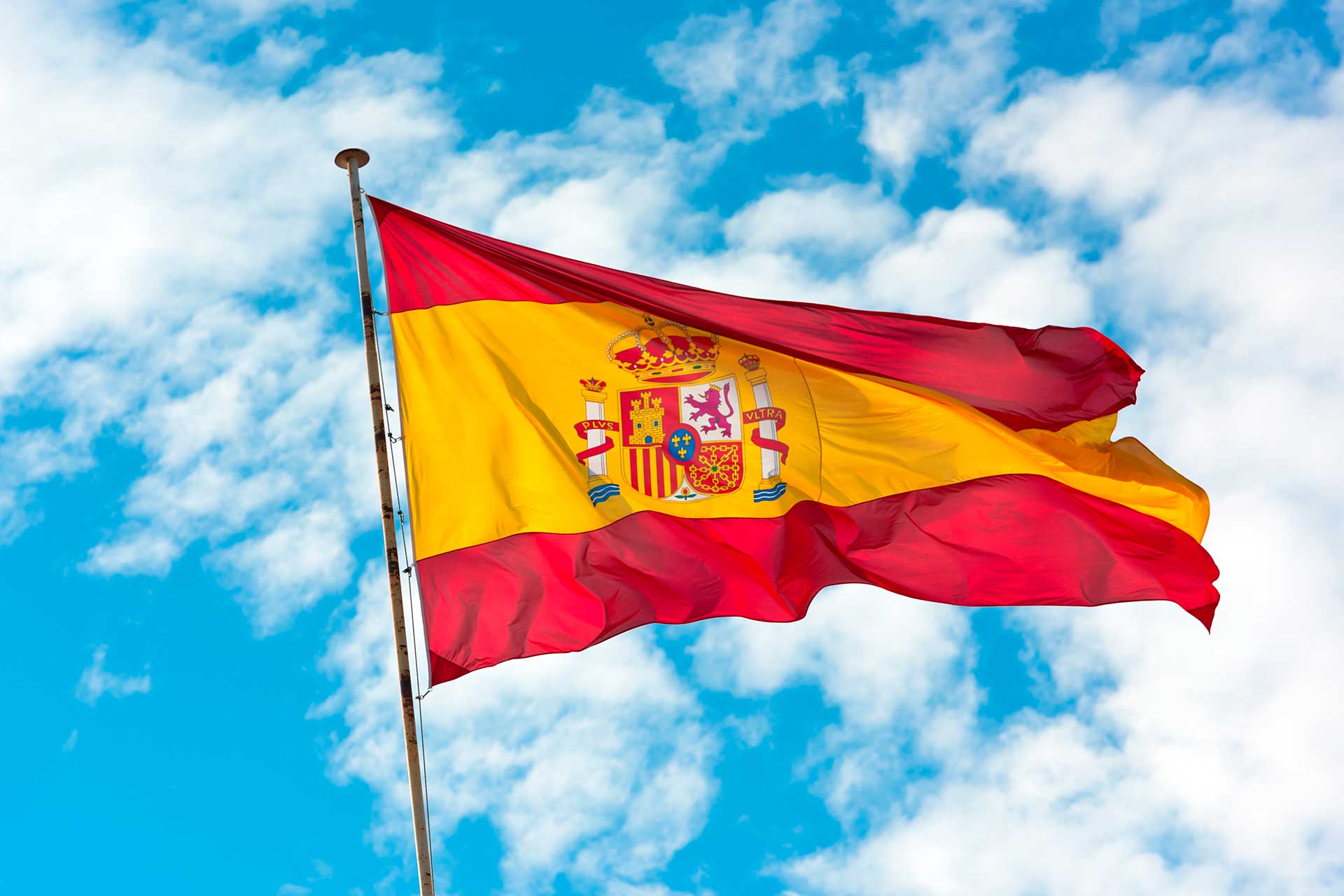March 17, 2025
Foreigners, as a rule, plan to move to Italy to start a new life in a highly developed industrial-agrarian EU country, a world center of fashion, culture and tourism. This Central European country ranks 30th out of 167 on the Legatum Prosperity Index.
The country’s strengths include well-developed medicine, decent income level of the population, high purchasing power index, good climate. Also, the Italian Republic is often chosen for relocation because of excellent business prospects, European democratic system of government, affordable prices for various types of goods.
International law specialists will create a personalized way for you to quickly and easily immigrate to Italy, taking into account your wishes, intentions and budget. Make an appointment for a free legal consultation to find out the details as soon as possible.
Reasons to choose Italy for relocation
One can move to Italy for a variety of reasons, usually the main one being the desire to increase one’s comfort and well-being. According to Numbeo, the country’s quality of life index is 150 points, which is a high score. With an average monthly salary of 3500 EUR (before taxes), a person here needs about 900 EUR for basic expenses (excluding rent). The unemployment rate in the state is gradually decreasing – for 2025 it is about 5.7 %. This means that most people have a chance to find a well-paid vacancy.
Italy is also attractive with the following advantages:
- Economic potential in different sectors.
Italy is a recognized trendsetter all over the world, so the sphere of light industry is actively developing here, there are many offices of famous brands. The country is one of the most popular centers of tourism on the planet, which gives unlimited prospects for business development in this industry. Metallurgy and engineering are also well developed in Italy, and a significant share of the economy is allocated to agriculture. It is easy to get a job here or open a sole proprietorship with any education and work experience. - Comfortable living conditions.
Italy has a well-developed network of railroads and highways, and maritime transportation prevails in foreign trade transportation due to the presence of modern large ports. There are also international airports, from which you can take a direct flight to any country. The infrastructure is well developed even in small towns – there are stores, pharmacies, doctor’s offices. According to Legatum Prosperity Index, the state ranks 27th in the world in terms of personal and public safety. - Membership in the main world unions.
The Italian Republic has been a member of the European Union and NATO since their creation. It is also a member of the Schengen Area, the United Nations, the World Trade Organization, and the OECD. Well-established international ties provide maximum opportunities for the country’s residents, who have access to trade in foreign markets, free cooperation with foreign partners, easy opening of visas to popular countries, unlimited travel almost all over Europe. - Access to developed education and health care systems.
Italy is ranked 17th out of 167 in Legatum’s prosperity index and has a score of 65 (high) by Numbeo. There are modern clinics with qualified doctors from different countries, and it is possible to be served in hospitals at the expense of basic insurance without additional payment. Also, Italy is one of the initiators of the introduction of the Bologna educational process, named after the university of the same name. In total, the country has more than 50 universities whose diplomas are recognized worldwide. - Rich culture and history.
Italy is not a boring country to live in. There are 58 UNESCO World Heritage Sites in the country, and Milan, Venice and Verona are visited by hundreds of thousands of people every year. The state is rich in cultural and architectural monuments and has an interesting long history. Most of the republic is washed by the Mediterranean Sea, and the warm and mild subtropical climate allows you to vacation on the coast most of the year. Italy is predominantly a mountainous country, home to the famous Alps with Mount Mont Blanc and famous winter resorts for outdoor activities.
The main stages of moving to Italy
To move to Italy, you need to decide on the immigration reason, prepare the necessary documents, apply for a visa and residence permit. It is also necessary to specify the cost of each stage of the procedure and the waiting period.
Choosing the reason for moving
If you plan to go to Italy for a long period of time with the prospect of obtaining a residence permit and citizenship, you will first need to open a residence permit of the immigration type. Such residence permit can be extended, and the stay with it on the territory of the republic is counted in the period of sedentary (compulsory residence) for subsequent naturalization. The most popular ways of relocation include:
- investment in the national economy from 250,000 to 2,000,000 EUR (organization of a start-up, purchase of company shares or non-refundable donations);
- employment in an Italian company, provided that the vacancy is not occupied by residents of the Republic;
- business immigration through opening a new company (with registration at the Chamber of Commerce) or individual entrepreneur status (with the approval of the relevant authorities);
- reunification with a family member (for example, parent, child or other relative by exception) from among residents or citizens of the state;
- stay at the own expense received from foreign sources, for example, as a remote employee’s salary or passive dividends;
- special cases of employment (traveling employees, intra-corporate transfer participants, or highly skilled professionals);
- immigration through marriage to a legal resident of the Republic (Italian spouses can obtain a passport as early as 2 years after moving);
- obtaining refugee status, additional (international) protection, other humanitarian circumstances (considered on an individual basis).
You can take advantage of other relocation programs, such as a domestic helper in an Italian family, an internship program, or participation in scientific research. However, these types of residence permit (including student residence permit) are not renewable and do not allow you to apply for a permanent residence permit. It is possible to come to the country for studies or other activities, and later find another reason for residency, such as employment after graduation from university.
The easiest way to move to Italy is with a passport of any other EU country. In a maximum of 12 months, immigration specialists can help you obtain a second EU citizenship without any special requirements or major investment. Find out more details in a free consultation with a lawyer.
Preparing the necessary documents and submitting the application
To move to Italy, you collect the following documents:
- passport of the home country (with D visa pasted in);
- four recent identical 35 x 45 mm photos;
- receipts for payment of the state fee at each stage of the procedure;
- health insurance policy;
- information on the source of livelihood and residence in the country;
- metric documents (birth, marriage, marriage or divorce certificates);
- proof of the legality of the move, for example, investor certificate or employment contract.
The list of additional documents depends on the program of emigration from other countries to Italy. For example, you may need an educational diploma for employment or a permit from the Ministry of Industry for commercial activities.
First you will need to open a visa to move to Italy by applying to a diplomatic mission. Once you arrive in the country, you will need to register your address with the municipality and request a residence permit from the police.
Cost and processing terms
To emigrate from other countries to Italy, you must first collect your documents, which usually takes about a month. A national visa is opened within 60 days if you do not require any additional information and your dossier is correct. Next, you organize your move to the Republic, which will also take time. Upon arrival, you request a temporary resident card, the term of production of which is not regulated by law and depends on the workload of the authorities. While waiting for a temporary residence permit, you can legally stay in the country and even work.
To calculate how much it will cost to immigrate to Italy, you need to take into account the size of government fees, the cost of notary and interpreter services, the cost of tickets and transportation of belongings to the Republic. You may also need to pay for relocation assistance from international law specialists to make the process easy and comfortable. The rates of administrative fees for the procedure for 2025 are as follows:
- D category visa – 116 EUR;
- application for residence permit – from 40 to 100 EUR (depends on the validity period);
- sending the request by post + excise stamp – 46 EUR;
- temporary resident card – 30.5 EUR.

Visa and migration peculiarities
If you plan to move to Italy, you need to obtain a national D visa. It is issued for immigration purposes for the same reason as the subsequent residence permit. There are different visas for self-employment, study, employment, as well as family, humanitarian, investor and other visas. You should apply to the consulate/embassy (by appointment) with a package of documents and a check on the payment of the state duty – if your request is approved, you will be returned a passport with a visa sticker.
With the visa you move to Italy, and upon arrival you will be registered in the local municipality. You will have 8 days from the moment you cross the border to apply for a residence permit at the police station. You can also send your application by post, but you will still need to visit the Immigration Service to be fingerprinted and photographed. The application will be considered and you will be issued a resident card for the same period as the D visa – from 6 months (for example, for seasonal work) to 3 years (for self-employment, family reunification, employment).
Conditions for obtaining a permanent residence and citizenship
You can apply for Italian residence permit after 5 years of continuous residence in the country. During the last year you must have a stable and legal income in the amount not lower than the social allowance (about 7000 EUR for 12 months). You must be law-abiding, have no criminal record, do not pose a threat to national and public security. Permanent residence will not be granted without knowledge of the language, so you need to learn Italian to the level of A2 and confirm it with documents, such as a test.
You can count on naturalization in Italy after 10 years of life in the country. To obtain citizenship you need a higher level of Italian – from B1. You will also need to prove your trustworthiness, provide a package of required documents, take part in the oath ceremony. With an Italian passport you acquire more rights and opportunities than with residence permit or permanent residence permit. In particular, you can visit more than 160 countries without a visa, move anywhere in the European Union, count on state support.
You get all the rights of an Italian citizen also with a passport of any other EU state. You have the opportunity to obtain a second citizenship in the EU without passing a language exam, demonstrating the level of income and prior residence abroad. The whole procedure is step-by-step controlled and organized by immigration lawyers.
Life in Italy: reviews and practical information
According to the reviews of people who have moved, life in Italy is interesting and comfortable. The high purchasing power index shows that locals can afford everything they need even with a minimal income. The level of development of industry, trade and tourism makes it possible to find profitable employment in different spheres. There is no discrimination against foreigners here – it is prohibited at the legislative level.
Among the best cities in Italy for moving foreigners distinguish the following:
- Milan.
Italy’s second largest city, which has a reputation as the financial, economic and scientific capital of the country, as well as the center of world fashion. It is the home of famous couturiers and light industry enterprises, the main Stock Exchange of the Republic, and popular exhibition areas. The average monthly salary (after tax deduction) in Milan is about 2000 EUR. For comfortable living you need to have from 1000 EUR. You will need at least 1000-1500 EUR to rent an apartment. Buying real estate here costs a lot of money – from 5000-8000 EUR for 1 m². - Bologna.
A historical city located in the northern part of Italy at the crossroads of international transportation corridors – it is considered to be the industrial, culinary and educational capital of the country. According to Numbeo, Bologna has the second highest standard of living in the country (after Milan). The oldest university in the world, the University of Bologna, is located here, and studying there is considered very prestigious. The average monthly salary in the city is 1800 EUR with approximate expenses per person from 950 EUR. Rent starts from 700 EUR per month, buying housing – from 3000 EUR per 1 m². - Genoa.
A large city with a rich history, which is the main port of Italy and attracts those who want to work in the field of seafaring, shipping, machinery and shipbuilding. Average salaries here are about 1600 EUR per month, and the approximate cost per person is 900 EUR. Housing in Genoa is cheaper than in million cities – rent starts from 500-700 EUR per month, purchase – from 1500 EUR per 1 m². There is no abundance of migrants and a constant flow of tourists, which provides a calm atmosphere and a high level of security. - Rome.
The Italian capital closes the list of comfortable cities as it has its pros and cons. It is one of the oldest cities in Europe with a rich history, offices of large companies and domestic market brands. There is enough work here, but salaries are not the highest in the country – on average about 1750 EUR (with expenses from 900 EUR per month). Many people do not like Rome because of the constant influx of tourists, traffic jams, air pollution and crime rate. Renting an apartment here costs at least 750-1000 EUR per month, buying one costs 3000-7000 EUR per m².
Immigrants who have settled in the country believe that if you decide to move to Italy, you should choose the northern regions. This is argued by the fact that the southern part is too full of tourists, as well as there are practically no large industries and financial centers, because of which it is difficult to find a high-paying job. Living in small towns on the Mediterranean coast is mainly chosen by those who run their own business or have a remote/passive source of income sufficient for self-sufficiency.
Food in Italy costs about 300-350 EUR per person per month. For utilities, internet and mobile communication you need to pay another 200-250 EUR. A monthly pass for transportation costs 30-40 EUR, a liter of gasoline – from 1.7 EUR. To go to the cinema, you will have to spend 10 EUR, membership in a fitness club will cost 50 EUR for 30 days. In practice, for a comfortable life in the republic you need to spend about 1000 EUR every month and pay for housing separately.
Advantages and disadvantages of moving to Italy
Living in a warm, ecologically clean and economically developed country of the European Union, located in the center of the Mediterranean is the main advantage of moving to Italy. Medicine is well developed here, but there is always a long queue for narrow specialists. You can get a prestigious education at your own expense or within the framework of scholarship programs. As an EU resident, you will be able to apply to foundations and business organizations for grants to organize a startup. Moving is possible without mandatory employment, if you have enough money to support yourself.
There are also minuses of life in Italy – lack of vacancies in the southern regions of the country, modest average salary level (if compared to other EU countries like Germany, France or the Netherlands), expensive real estate, high taxes (for example, up to 43% of personal income tax). Natives are peculiar – they are very active, energetic, emotional and not particularly hardworking. The authorities here do not work in a hurry, so the immigration process can take a long time. Therefore, for an easy move, you should enlist the support of specialized professionals.
How to simplify the process of immigration to Italy
If you want to move to Italy quickly and effortlessly, use the services of international law specialists. Specialized lawyers offer step-by-step assistance in emigrating from other countries to Europe. With their support, you are guaranteed to obtain residency or even EU citizenship. For example, with specialists you can obtain a second passport in the EU in just 4-12 months and live with it in Italy for an unlimited period of time. To obtain a new citizenship you will not have to open a residence permit, pass an integration exam and spend large amounts.
Specialists of international law do not act in a formulaic way, each client they offer a personalized plan of immigration to Italy, taking into account individual requests and features of the dossier. Legal support excludes the possibility of errors in the procedure and gives confidence in obtaining legal status in the EU. Specialists independently perform most of the relocation tasks – prepare a package of documents, solve the issues of logistics and visiting the authorities. Sign up for a free consultation today to start the procedure of moving to Italy without delay.

 English
English  العربية
العربية  Русский
Русский 


